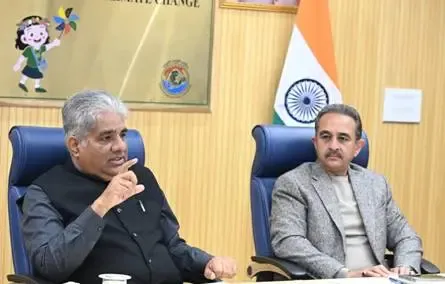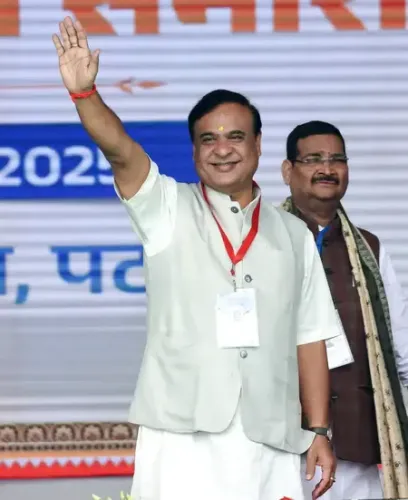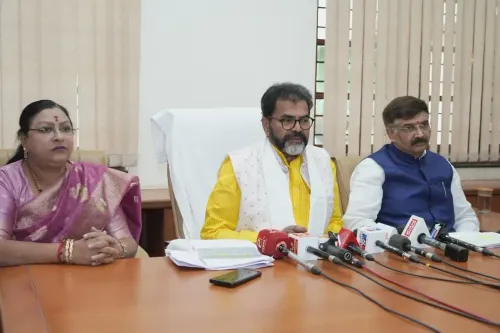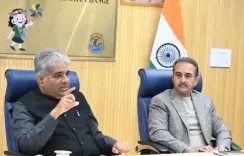Is Refusing Single-Use Plastic a Step Towards Environmental Conservation?

Synopsis
Key Takeaways
- Plastic pollution is a significant environmental threat.
- Rejecting single-use plastic is vital for conservation.
- Maharashtra plans to plant 100 million trees this year.
- AI technology will enhance tree survival rates.
- India aims for 50% renewable energy by 2030.
Mumbai, June 4 (NationPress) Emphasizing that plastic poses the greatest threat to our ecosystem, Maharashtra's Chief Minister Devendra Fadnavis asserted that rejecting single-use plastic is a powerful commitment to environmental conservation.
He called upon the public to engage in the government's ambitious initiative to plant 10 crore (100 million) trees this year.
Launched on World Environment Day, a global awareness campaign on climate change featured prominent attendees such as Goa’s Transport Minister Mauvin Godinho, BMC Additional Commissioner Dinesh Palvewad, Bhamla Foundation’s Asif Bhamla, actress Raveena Tandon, Godrej Group’s Nadir Godrej, and lyricist Swanand Kirkire.
CM Fadnavis highlighted that reducing plastic usage can significantly lessen environmental degradation. With advancements in technology, it is feasible to create biodegradable alternatives to plastic. He urged the public to innovate and utilize such options. The ongoing tree plantation drive will not only focus on planting trees but will also ensure their survival and growth through AI-based monitoring systems.
He added that Mumbai is building the nation’s largest wastewater treatment network, guaranteeing that soon all wastewater discharged into the sea will be treated. He reiterated Prime Minister Narendra Modi’s pledge for ‘Net Zero’ carbon emissions by 2030, with India set to fulfill 50% of its energy needs from renewable sources.
“Maharashtra is at the forefront of this endeavor, aiming to meet 16,000 MW of agricultural energy requirements through solar power by 2026. Major cities are transitioning public transport to green energy, with Mumbai taking the lead. Additionally, a unified ticketing system for public transport in the city will be introduced,” he shared.
During the event, CM Fadnavis unveiled an environmental awareness campaign video titled “Pyaasa,” featuring actor Ajay Devgn, aimed at promoting the ban on single-use plastics and raising awareness about environmental protection.










